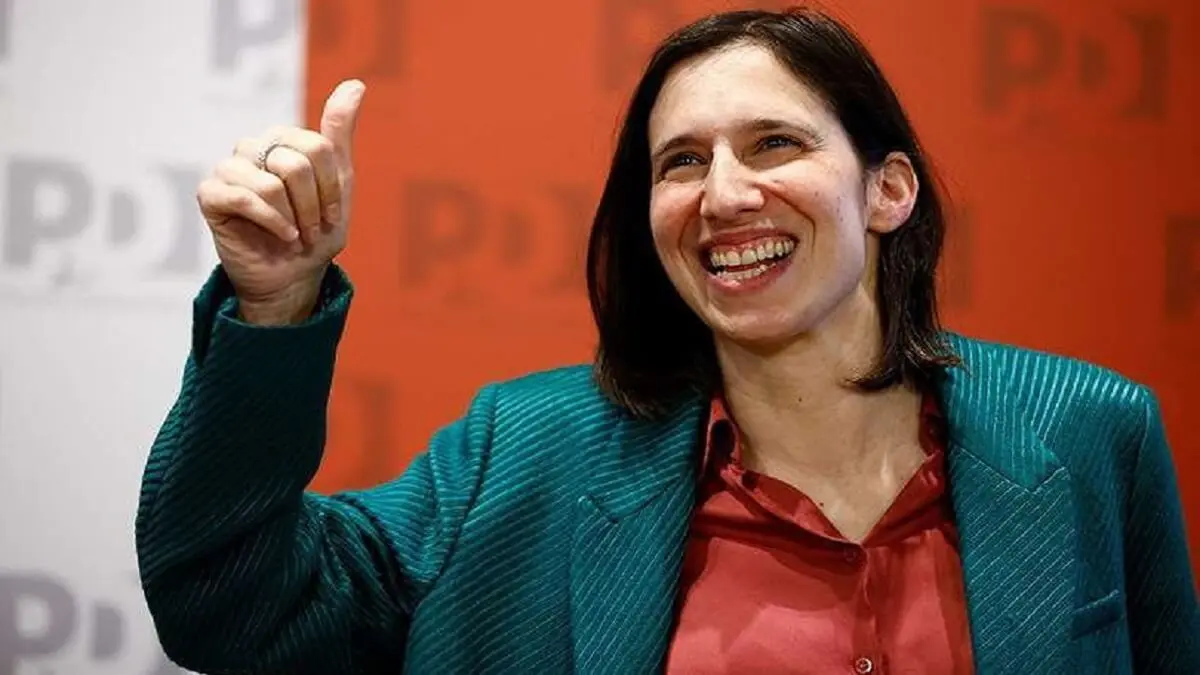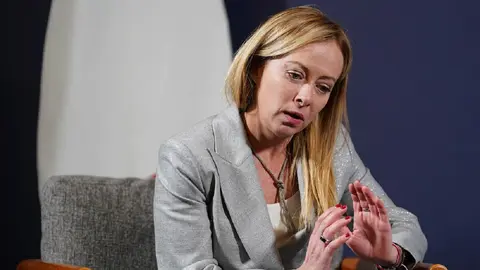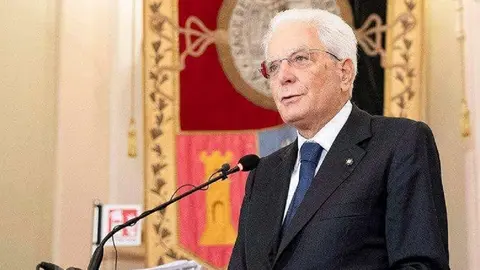Meloni and Schlein or the return to the right-left axis in Italian politics

It has just been announced that the current president of the Italian Council of Ministers, the Roman Meloni, has accepted a debate with the leader of the national left (the Bolognese Ely Schlein), who has been leading the national left since February last year.
Although it has yet to be decided on which television channel (the public RAI and one of the main private channels, "La7", are strongly contending), and even who will moderate the debate (Bruno Vespa, a veteran journalist with the RAI, where he has worked for almost 56 years and whose programme, "Porta a Porta", has been a ratings leader for decades), both politicians have confirmed that they will attend the debate, the date of which is still to be determined.
Giorgia Meloni and Ely Schlein in a battle of the minds
It seems clear that both are doing so with a view to the main elections of the year (the European Parliament elections in June), but it is also clear that both are keen to consolidate their leadership and even to make it clear that transalpine politics is not currently moving between centre-right and centre-left, but rather between right and left. Formally, the executive is a three-party coalition, but the only real centre-right party (Antonio Tajani's Forza Italia) is polling just 6-7% of the vote compared to Meloni's party's overwhelming 29-30%. Schlein, for his part, has shifted his party, the Democratic Party, from the centre-left (where he was, for example, during Matteo Renzi's time as secretary general) to a clearer left, although different from other times, as it is now less communist and instead more concerned with issues such as gender identity and environmental protection. After all, Schlein, born in 1985, was only six years old when the democratisation process in the former communist republics of Eastern Europe culminated and also when the Union of Soviet Socialist Republics was dissolved.
Schlein, like Meloni, has "fellow travellers", such as the Five Star Movement or the "Greens", but, although for the moment she continues to form a bloc with them, she knows that a debate of this type could be key to identifying her with a left that is currently very blurred and which, since Pierluigi Bersani's electoral victory in February 2013, has had very poor support figures.
Paradoxically, both could emerge from the debate very strengthened. In Meloni's case, because in the previous elections to the European Parliament, held in May 2019, she achieved little more than 5% support, compared to the overwhelming 34% of her coalition partner, the leader of the League and current deputy prime minister and head of infrastructure (Matteo Salvini). Although Meloni will suffer from the wear and tear of a year and a half of government, it seems difficult for her not to be at least above 20% of the vote, which would multiply by four what she achieved five years ago.
In turn, Schlein, who in the polls is polling at 19-20% of the vote, if he takes part of the Five Star vote (it is no longer clear what it is or what it stands for), could overcome the low level of support (22.8%) of the then PD secretary general, Nicola Zingaretti, now a junior member of parliament and former governor of the Lazio region. Given that there will be dissatisfaction with the widening social divide, and with how neglected the southernmost regions (Basilicata, Calabria, Sardinia, Puglia and Sicily) are, Ely Schlein can achieve a significant rise in support. The fact is that the main beneficiary in those areas in May 2019 (Matteo Salvini), does not even reach 10% of voting intention in the current polls and, although it is foreseeable that he will manage to improve the current level of support he has (his harsh anti-immigration discourse reached, in the first half of 2019, 70% of supporters), it seems that between Meloni and Schlein they will share the 20 points that Salvini will surely lose with respect to the election of five years ago.
Predictions ahead of the debate
Who can win the debate? Certainly, Meloni, eight years older than Schlein, has been in politics for much longer: in the 2006-08 parliamentary term she was not only a member of parliament, but even first vice-president of the lower house, compared to Schlein who only became a member of parliament in June 2014. Schlein is familiar with local politics, having been vice-president of the Emilia-Romagna region between January 2020 and September 2022, but Meloni has in her favour having been first minister and then premier, as well as a candidate (albeit an unsuccessful one) in the May 2016 mayoral elections in Rome.
Meloni, the first woman to preside over a Council of Ministers in almost 78 years of the Italian Republic, has achieved strong leadership within her party and also within her coalition. While Salvini is paying for the fact that he twice brought down a government in the previous legislature (plus the huge mistake of trying to play king-maker in the election of the President of the Republic in January 2022, where everything was resolved by asking Sergio Mattarella to take on a second term), Antonio Tajani, for his part, is in the final stretch of his political career: MEP, commissioner, president of the European Parliament, deputy prime minister and foreign affairs minister, at the age of 70 he knows that this will probably be his last term in office, although who knows if one day his name could be considered as head of state.
In the case of Schlein, a surprise winner in her party's primaries against her former political mentor (Bonaccini, current president of Emilia-Romagna), she has hardly been seen in her first year as secretary general, but she has had enough to do to change the leadership of her party. With a very good university education (she graduated with top marks from the prestigious Faculty of Law at the University of Bologna), she has before her the possibility of establishing herself as the leader of a party, the PD, which has only shone in Matteo Renzi's time (especially in his first term, from December 2013 to February 2017).
The "premier" will go into the debate in a relatively relaxed mood. Having dispelled the misconceptions that she was a "neo-fascist" or "post-fascist" leader, she has largely complied with the European Commission's demands on the implementation of the Stability and Growth Pact, knowing that the rating agencies were "waiting" for her to downgrade her sovereign debt rating even further. True to its Euroscepticism, however, and unlike the other 26 EU member states, it has refused to ratify the ESM, a key element of the Banking and Monetary Union. It is possible that, if it were up to Meloni, he would have ratified the ESM, but he knew that he needed the votes of Salvini's League to push through the General State Budget (PGE) and the Lombard politician, known for his furious anti-Europeanism, made it clear to him that this was not the way to go.
But beyond that, Meloni has the usual problems of its productive apparatus: huge public debt (the highest in the whole of the European Union), an ageing population (it has had to spend 340 billion of the PGE on pensions alone), a growing imbalance between the northern and southern parts of the country, and so on. Problems, all in all, inherited from the past and which are difficult to tackle when, with the rise in the price of raw materials that the West is suffering, industry is experiencing cost overruns that mean that, at the moment (data from the International Monetary Fund, IMF), the growth forecast for 2024 is only +0.7%, a figure that languishes in comparison with that achieved by the Draghi government in 2021 (no less and no more than +8.3%).
In contrast to her, it remains to be seen where the young Schlein, who is as legally trained as she is unversed in parliamentary debate, will direct her discourse. Her activism at a very young age is well known, but little else is known about her. It will thus be a unique opportunity to make herself known to many voters who see that, after the generation formed by Salvini (born in 1973), Renzi (1975) and Meloni (1977), there is no newcomer, at least not a guaranteed one, in transalpine politics. However, it will be interesting to see how radical Schlein's discourse is, as she is against supporting Ukraine in the war with the Russian Federation and also against elements such as the famous "thermo-valorisers" that are used in Rome and other cities to put an end to the filth that is rampant in the "Eternal City" but which has polluting effects.
And, above all, the most interesting thing will be to see two female leaders, women less than ten years apart, confront each other in the very macho transalpine politics. Meloni is already a reality, but Schlein remains an unknown quantity. In a few weeks' time we will see which of the two will prove more worthy.
Pablo Martín de Santa Olalla Saludes is a lecturer in the Faculty of Communication and Humanities at the Camilo José Cela University (UCJC) and author of the book "Italia, 2018-2023. De la esperanza a la desafección" (Líber Factory, 2023).



